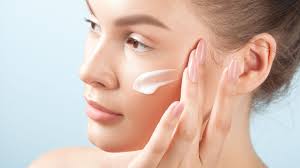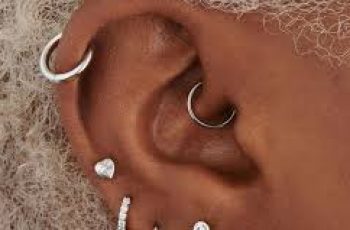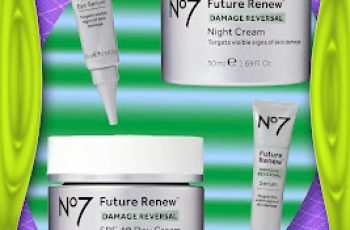
Panthenol in Skin Care
Panthenol is an alcohol that is increasingly common in a large variety skin care products. When it is absorbed into the skin, this water soluble compound becomes pantothenic acid (a form of vitamin B5) that can treat issues from dehydration to inflammation, even offering benefits in hair care.
Panthenol is non-comedogenic, meaning it is a safe moisturizing ingredient for acne prone skin types and is not likely to contribute to the development of comedones.
To find out if panthenol is a good addition to your custom skin care regimen, take our quiz and read below to get all the facts on this safe and beneficial skin care ingredient!
What is Panthenol?
Panthenol is an alcohol historically derived from plant and animal tissues, but in modern cosmetics is usually synthesized in a laboratory. Two common plants that contain panthenol are sunflowers and chamomile.
It’s primary function is as a humectant moisturizer, not too unlike glycerin or hyaluronic acid.
When absorbed by the skin, panthenol changes into pantothenic acid, a biologically active form of vitamin B5.
Unlike Niacinamide, which is a form of vitamin B3, panthenol exhibits no skin lightening properties.
Panthenol is broadly useful in skin care because it offers relief from dryness and may protect the skin from inflammation induced by allergens and irritants.
How does Panthenol work?
Panthenol is a water soluble humectant, this means it draws moisture into itself which brings that moisture towards the surface of the skin. (2,3) Humectants are extremely common as moisturizing ingredients and typically best for dry skin types.
The second notable function of panthenol is how it stimulates lipid synthesis in the skin. (4)
This property means that the essential lipids of the skin barrier (free fatty acids, cholesterol, and ceramides) can be regulated in part through use of of this ingredient.
Since it aids in the genesis of skin barrier forming lipids, it is also considered used as a mild anti-inflammatory to treat conditions like rosacea although there is a paucity of research to support its anti-inflammatory claims. (5,6)
Take our quiz to find out if Panthenol fulfills any of your skin care needs!
Benefits
Panthenol has a number of relevant benefits in skin care, particularly as a moisturizing ingredient.
Some studies have found that panthenol has effects in treating sun damage and redness through its mild antioxidant properties (though far less than, say, vitamins C or E). (6)
Studies have found that panthenol is also very useful in hair care for maintaining the scalp and even strengthening individual strands of hair. (8-11)
Side-effects
There are no common notable side-effects associated with panthenol or vitamin B5 in skin care.
Like most ingredients, there exists a risk of mild contact dermatitis (general irritation) which can depend on whether you have an allergy to it or not. Otherwise, panthenol is non-comedogenic, does not form free radicals on the skin, nor does it cause inflammation.
The only side effects typically considered when using this ingredient are that overusing a humectant can result in a cycle of humectant dependency (like when you use lip balm too frequently, and that overuse of moisturizers can result in a change to the skin’s natural microbiome. Over moisturizing the skin creates a better environment for acne causing and other bacteria to grow on the skin.
Is it safe?
Panthenol has been rigorously studied by multiple independent research bodies and has been found safe
In particular, the Cosmetic Ingredient Review Panel (CIR) and the Environmental Working Group (EWG) have deemed all common cosmetic formulations of panthenol as safe.
This ingredient has no risks of carcinogenesis nor toxicity or potent allergy.
That being said, a mild allergy is possible, so if you experience an allergic reaction there is probably a better humectant for you on the market (perhaps glycerin, hyaluronic acid, or even honey).
Panthenol for dry skin
Dry skin
Panthenol is primarily notable for being an effective humectant, meaning it is great at drawing moisture from deep within the skin to the surface. From this function alone, it is considered good for many dry skin types. (2)
Additionally, the lipid stimulating functions of this alcohol help maintain the skin barrier. A healthy skin barrier is less susceptible to transepidermal water loss, aka evaporation off of the skin.
Dry, irritated skin conditions such as eczema benefit from hydrating, anti-inflammatory compounds such as this one. Typically, humectants are used alongside occlusive moisturizing ingredients to replace the drawn moisture and keep it all within the skin. (12)
Inflammation
Inflammation is often an indicator of a damaged skin barrier (not always), which means ingredients that contribute to barrier repair are generally good anti-inflammatories.
Studies have found that panthenol is effective for barrier repair on the stratum corneum. (3)
Conditions like dry skin types with rosacea which present as dry, inflamed, red skin can benefit from applications of panthenol. (4)
Sun damage
Panthenol, though not the best for this problem, can be somewhat useful in treating sun damage. Sun damage is most effectively treated by antioxidant ingredients that can help eliminate free radical ions in the skin which often result in genetic damage.
Even though Panthenol is a B vitamin with slight antioxidant properties, there are better choices for treating significant sun damage. There is actually no strong evidence that panthenol is a good antioxidant. Vitamins like C & E are far more effective and proven as antioxidants.
To find a list of all our favorite antioxidant ingredients in categories, check out the blog linked here.
Panthenol for hair care
Hair care
One of the most exciting applications of panthenol in my opinion is as a hair care ingredient.
Panthenol has been observed to have multiple hair care benefits in research trials including scalp soothing/repair, the strengthening and protection of individual hair strands, keeping frizzy hair at bay, and even stopping the development of split ends. (8-11)
The scalp, like the rest of your skin, is vulnerable to dryness and inflammation; these are problems that can affect hair health in notable ways. A frail scalp might develop clogged pores which can prevent the growth of new hairs. Panthenol keeps the scalp moisturized which largely prevents this concern.
Individual hairs strands are kept hydrated by panthenol, making them less susceptible to breakage than otherwise. A dry hair is a hair at risk of breaking.
The same quality of hydration is why panthenol can prevent split ends; those are caused by dryness or the death of the end of a strand.
When hairs are moisturized they are also less likely to fray/frizz in dry temperatures.
It is important to note that your scalp is the same skin type as your face, so you should avoid over-moisturizing your hair if you have oily skin. Oily scalps with additional added moisture can result in comedones on the scalp and greasy, inelegant hair texture. When choosing a hair product, keep your skin type in mind.
Panthenol vs glycerin
Panthenol vs Glycerin
Both panthenol and glycerin are humectants, and both are of course water soluble.
Glycerin can navigate the Aquaporin channels between skin cells, while panthenol has not displayed this property in research.
Both are alcohols, (glycerin is also called glycerol, with -ol usually indicating an alcohol).
Both can be derived from animals, and companies are not required to disclose the origins of either on product labels.
Glycerin is the more effective humectant in terms of skin hydration, but panthenol exhibits a number of properties that glycerin does not; these include lipid synthesis stimulation, soothing of redness, and wound healing acceleration.
Neither ingredient is comedogenic, so your use of one or the other is broadly up to you.
Is Panthenol Vegan?
The short, simple answer is that panthenol is most often vegan for cosmetic uses, but it has historically been (and in some cases is still) derived from animal tissues, e.g the liver of mammals.
This is a similar concern to the origins of ingredients like glycerin or cholesterol, both of which can also be derived from vegan, animal, or synthetic sources at the volition of the production companies.
Unfortunately, companies are not required to share the animal background of their ingredients. Often, companies that care to be vegan indicate that feature on their product labels, but that is frankly a marketing move and should be standard disclosure.
Some companies label their vegan panthenol as Vegan-HDS-Panthenol, but again they don’t have to do this. It’s super tricky to stay vegan with skin care.
In modern cosmetics, a vast majority of panthenol is reported to be synthetic, though very little evidence is publically available to make that claim.
If you are concerned that your panthenol may be one of the extreme few animal derived versions of it, your best bet to get good information might be to call the manufacturer of that product personally, and hope they know their own science.
Alternatively, here is a link to PETA’s registry of animal derived ingredients.
Make sure you’re receiving our informative emails and guidance for a personalized skincare regimen.
If you’ve completed the quiz, locate your customized routine here along with your skin type details.
We’re here to assist you in the correct application of retinoids, as they stand out as the top anti-aging ingredient, backed by substantial evidence for addressing acne, pigmentation concerns, and aging skin.
Let us help you get your perfect skin!


